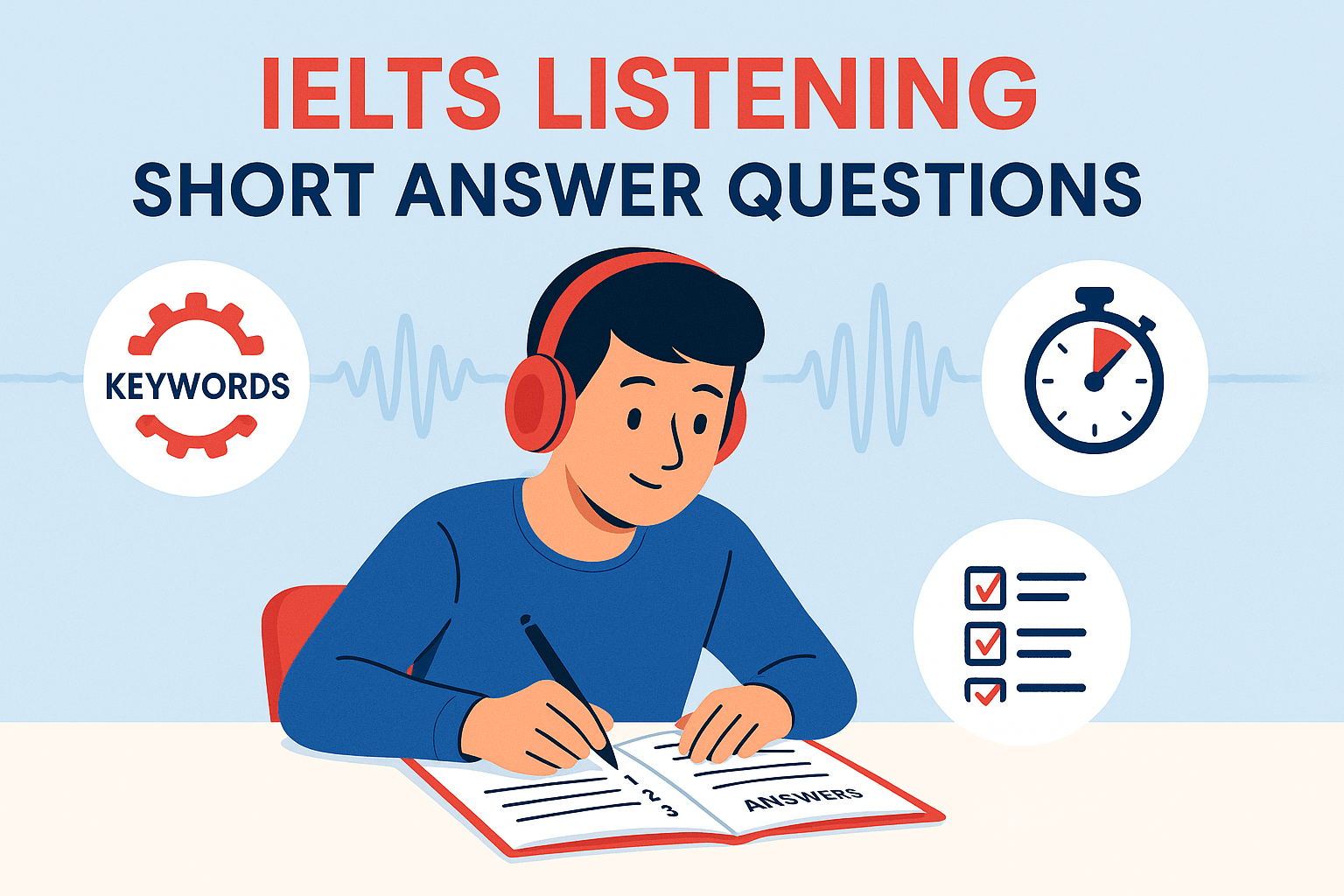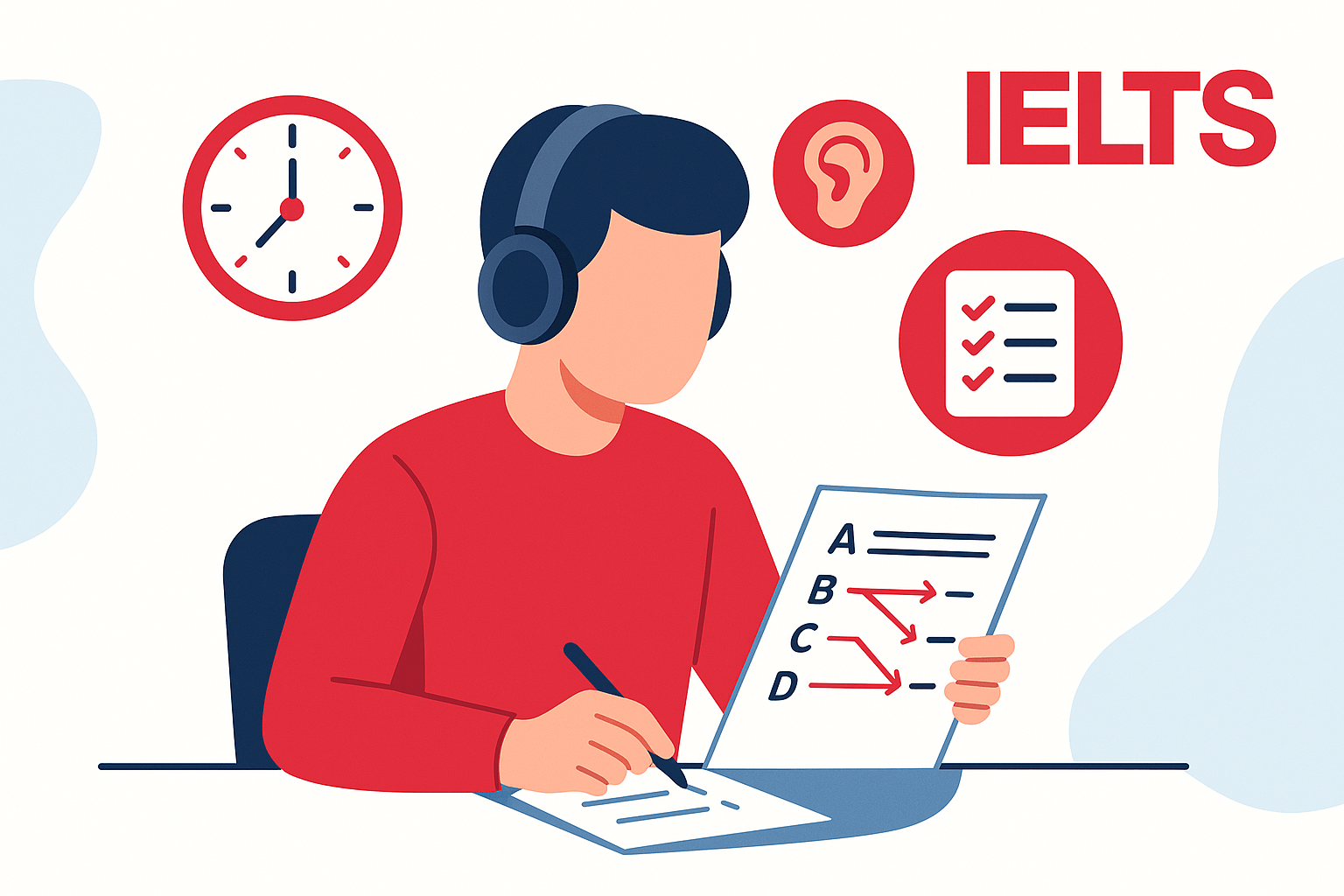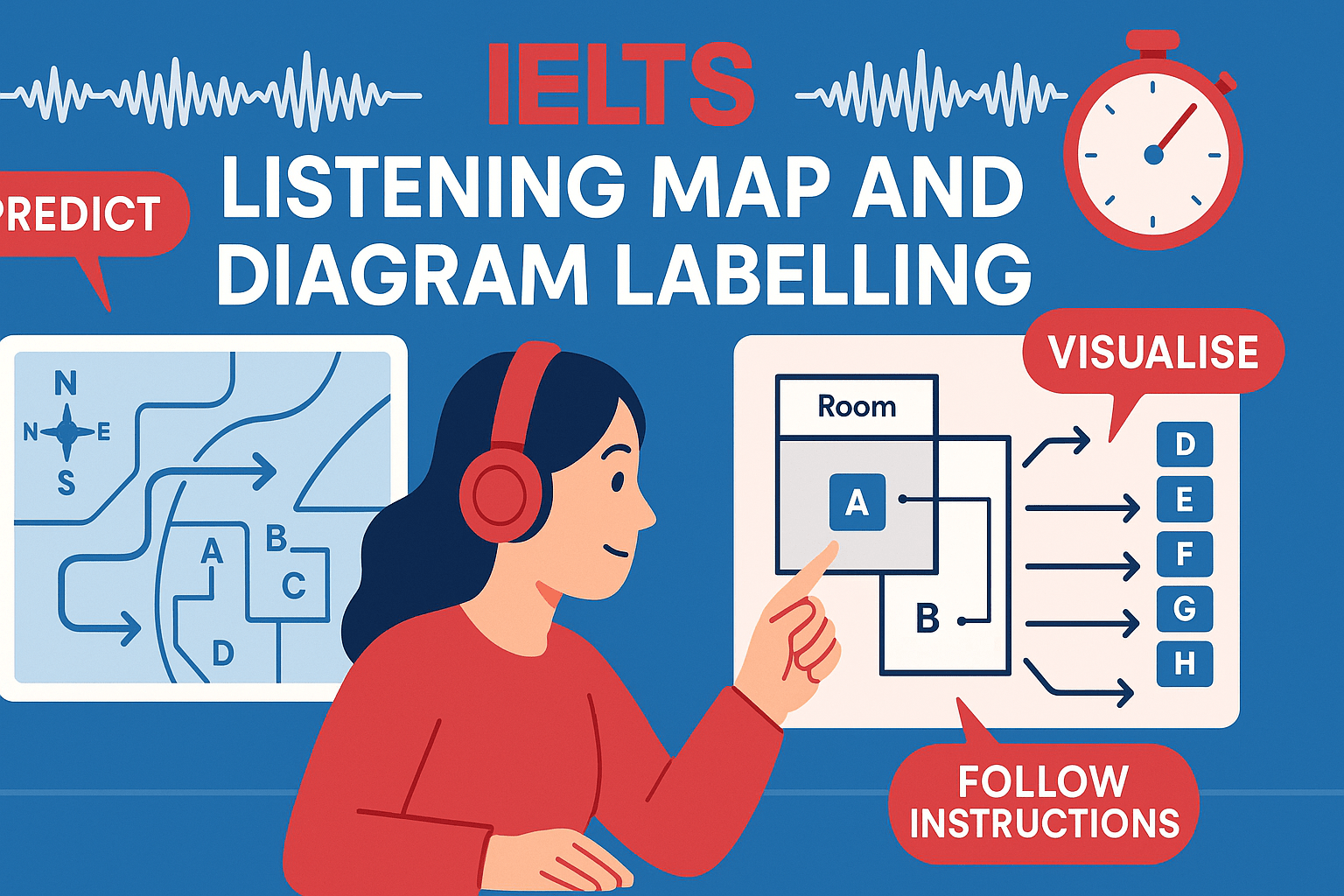- Why IELTS Listening Vocabulary Matters So Much
- Types of Vocabulary You Need to Master
- How I Train Students in IELTS Listening Vocabulary
- Common Vocabulary Mistakes That Lower Your Score
- Practical Tips to Improve IELTS Listening Vocabulary
- Real Results from Real Students
- FAQ: IELTS Listening Vocabulary & Practice
- Final Thoughts
When students ask me how to improve their IELTS Listening scores, the first thing I tell them is this: focus on your IELTS Listening vocabulary. From my experience as an international IELTS teacher working with learners from over 20 countries, vocabulary is often the hidden key that unlocks better comprehension and accuracy — and ultimately, higher band scores.
Many of my students come to me frustrated. They understand grammar, follow the speaker, and take notes. Yet they still miss answers. Why? Because they don’t recognise a synonym, they mishear a date, or they write down the wrong form of a word. In this guide, I’ll walk you through exactly how to fix that using proven vocabulary strategies and focused listening practice.
Why IELTS Listening Vocabulary Matters So Much
IELTS Listening is not just about hearing words — it’s about understanding them in context. The test is full of paraphrasing, synonyms, and rewording, so if you only know a narrow set of vocabulary, you’ll struggle.
One of my students in Spain kept missing answers in matching questions, even though she understood the conversation. It turned out she didn’t know that “venue” could also mean “location” or “site.” After expanding her topic-specific vocabulary, her listening improved dramatically.
Want to avoid missing answers like this? You need to build topic-based vocabulary, recognise paraphrased language, and practise spelling, numbers, and dates accurately — all of which we’ll cover below.
Types of Vocabulary You Need to Master
To do well in the Listening test, you need more than just a general English word list. You need vocabulary that’s specific to the types of recordings and contexts in IELTS. Here’s what I recommend focusing on:
1. Topic-Based Vocabulary
The IELTS Listening test covers predictable topics: education, travel, health, environment, technology, and more. For each, build a word bank of:
- Nouns and related verbs
- Synonyms (e.g. “assignment” vs. “project”)
- Common phrases (e.g. “make a reservation,” “submit an application”)
I’ve created a full breakdown of essential topics and word lists in this IELTS Listening vocabulary guide — it’s the best place to start.
2. Signal Words and Functional Phrases
Train your ears to pick up clues in the recording like:
- “Let me repeat that…” (important info is coming)
- “That’s no longer the case…” (correction)
- “I’d recommend…” (opinion/recommendation)
Understanding these functional chunks helps you follow the conversation and anticipate answers.
3. Numbers, Spelling, and Dates
Even strong students lose marks in form completion and table questions because of number and spelling mistakes. I explain how to master this in this detailed guide, which includes common traps and how to train your ear.
How I Train Students in IELTS Listening Vocabulary
Let me walk you through the three-step approach I use with my students:
Step 1: Build Your Word Bank by Topic
Each week, I assign a different IELTS topic — like “education” or “housing.” Students gather 20–30 useful words and phrases. We use real audio clips and model answers to see them in use.
Step 2: Practice with Real IELTS Audio
You can’t just memorise vocabulary — you need to hear it in context. I often direct students to IELTS Listening practice tests to do just that. These tests expose you to different accents, question types, and paraphrasing techniques.
For a structured approach, follow my IELTS Listening Daily Practice 30-Day Plan — it’s a game-changer for consistency.
Step 3: Self-Test & Track Mistakes
After each practice session, we analyse the errors. Did you miss a word because of pronunciation? Was it a spelling issue? Was the word unfamiliar? Over time, you’ll see patterns — and fix them.
Common Vocabulary Mistakes That Lower Your Score
Here are the top vocabulary-related mistakes I see from students:
1. Misunderstanding Paraphrased Words
For example, the question says “job responsibilities”, but the recording says “what the role involves.” If you don’t know both expressions, you’ll miss the answer.
2. Spelling Errors in Form/Table Completion
A student of mine in Bangladesh lost two marks because he wrote “accomodation” instead of “accommodation.” Painful, but fixable with spelling drills.
3. Confusing Homophones or Similar-Sounding Words
Words like “their” and “there,” “weather” and “whether,” or “piece” and “peace” can be confusing. Listening drills focused on tricky sound patterns help build awareness.
Practical Tips to Improve IELTS Listening Vocabulary
- Use a Vocabulary Journal: Write down new words by topic, include definitions, synonyms, and example sentences.
- Train Your Ear: Watch English content (TED Talks, BBC, podcasts) related to IELTS topics.
- Do Targeted Practice: Use IELTS Listening practice tests with answers to learn in context.
- Set Daily Goals: My 30-day plan includes daily mini-tasks — a few words a day really adds up.
- Use Official Resources: Visit IELTS.org, British Council IELTS, or IDP IELTS for sample materials.
- Consider a Premium IELTS Course: If you’re serious about Band 7–9, I recommend checking out IELTS courses on Course Line.
Real Results from Real Students
One of my students from Turkey was stuck at Band 6.5 for three months. Her biggest problem? She wasn’t recognising paraphrased vocabulary in sentence completion tasks. I gave her a focused plan with topic lists and listening drills, and within 6 weeks, she scored Band 7.5 — all from sharpening her vocabulary skills.
Another student from Nigeria kept spelling “environment” and “government” incorrectly in form questions. We worked through this spelling and numbers guide, and after targeted practice, he eliminated those errors completely.
FAQ: IELTS Listening Vocabulary & Practice
1. How much vocabulary do I need for IELTS Listening?
You don’t need thousands of words — you need the right words. Aim for 20–30 words per topic across common IELTS themes like education, travel, environment, etc.
2. Can poor spelling lower my score?
Yes. If a word is spelled incorrectly in the answer sheet, even slightly, you lose the mark. That’s why I always recommend daily spelling review using Listening tasks.
3. How do I improve vocabulary for paraphrasing?
Focus on recognising synonyms in context. When practising, highlight paraphrased sections and compare them to the questions. My IELTS Listening vocabulary guide teaches this in detail.
4. How often should I practise?
Daily practice, even just 15–20 minutes, is better than once a week. Use the 30-day practice plan if you want a clear, manageable routine.
Final Thoughts
Improving your IELTS Listening vocabulary is not about cramming — it’s about building a habit of exposure, practice, and review. I’ve seen students transform their scores simply by shifting their focus from passive listening to active vocabulary development.
If you’re aiming for Band 7 or higher, this is your foundation. Start today with targeted vocabulary lists, train with real practice tests, and use all the free and premium resources at your fingertips. You’ve got this — and I’m here to guide you every step of the way.






4 Responses